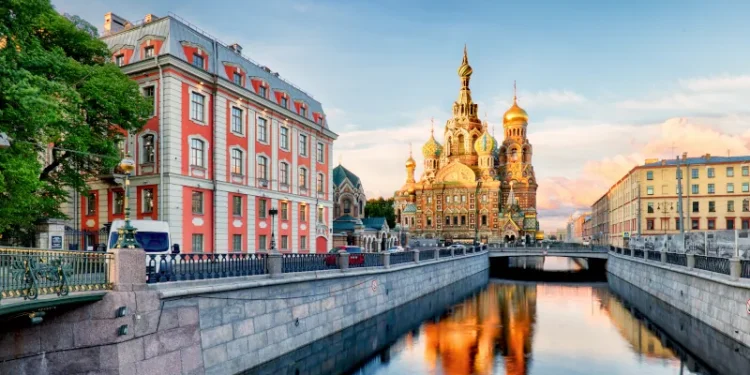A few years ago, I had a conversation with a fellow real estate investor about his rental properties.
He had bought multiple apartments in three locations and was happy with them all. They were returning good yields and values were holding up in U.S. dollar terms, despite currency fluctuations in the two markets that weren’t in U.S. dollars.
The three markets are St. Peterburg, Russia; Santa Marta, Colombia; and Panama City, Panama.
A while back, I ran into my colleague and got an update. All three markets are still renting well. However, due to the pandemic and the war in Ukraine, how his portfolio operates has changed some.
During the pandemic, the properties in Colombia still rented well thanks to local tourism replacing the international tourism that his properties were attracting.
The wealthy Colombians that take their beach vacations in Santa Marta typically own second homes there, so they aren’t renters. However, with no options for international travel during the pandemic, the local middle-class, as well as the wealthy who didn’t own in Santa Marta, were able to fill the gap created by the missing Europeans.
His occupancy rates didn’t fall below 80%.
With the pandemic over, the mainly European short-term renters returned, and he now has fewer Colombian renters.
The properties in Panama are long-term rentals, so they have less volatility day to day for occupancy and have produced stable yields both before the pandemic and in the years since.
Panama City is a market with many expats working for international companies. These workers typically are on short-term assignments, so they aren’t property buyers. They are, however, a great pool of renters for long-term furnished apartments.
They are on international salaries, and the company sometimes covers rent as part of their contract. That means you don’t have to worry about getting your rent paid.
Yields for long-term furnished apartments are generally lower than short-term rentals, but in Panama City, rentals under 45 days are restricted.
The last location in St. Petersburg has a more complicated story.
The apartments were rented well during the pandemic to local tourists. With the travel bans on Russians, along with no one going to Russia right now, the apartments continue to rent well to wealthy tourists from Moscow.
In fact, despite the economics in Russia right now, the apartments continue to have high occupancy rates and have increased significantly in value, according to my colleague.
The issue is he can’t get his money out of Russia because of all the sanctions.
That leaves him with no real options, except to continue to rent and accumulate the rubles in his Russian bank account.
The good news for his portfolio, both during the pandemic and now, is that he has diversification— three different markets that have very different economics around them, and rental income in three different currencies.
He’s built up his portfolio over 20 years, starting before Airbnb even existed as an option for finding renters. For the early apartments in his portfolio, he used local rental managers to keep the places filled… including Panama before the 45-day short-term rental limit came into effect. As new options like Airbnb came around, he adapted his management strategy.
However, he didn’t really change his investment strategy.
He wanted diversification but knew not to be in too many markets or he’d hit administrative challenges. In fact, to me, St. Petersburg is an outlier for location because of the distance from the other two markets he’s invested in. He liked the opportunity in St. Petersburg… and it worked out well until Russia invaded Ukraine. Eventually, he should be able to liquidate his holding in Russia and get his money out.
Meanwhile, the other markets continue to generate good cash flow that is accessible.
Besides diversification, flexibility has helped his portfolio continue to generate good yields. Some of the flexibility he created himself. Some of it was natural in the marketplaces. Some of it had to be worked out.
Being able to shift from local rental managers to Airbnb and manage the properties himself (for the most part) allowed him to keep more of his rental income and improve his net yields. Albeit it’s because he’s spending more of his time managing. He put together local teams for the property management side, as he’s not there to do things like repairs or restock toilet paper.
Shifting from short-term rentals to long-term rentals in Panama is the kind of flexibility you should look at in every market you’re thinking of investing in. I’ve been able to make that change from one direction to the other in many markets over the years as the market or my needs have changed.
In Argentina 20 years ago, we moved to long-term from short-term for one apartment simply because it was easier to manage, and it didn’t change the yield at the time.
We changed from short-term to long-term in Paris because our HOA disallowed short-term rentals.
The apartment we bought in Lagos, Portugal, was renting long-term when we bought it, and we changed it to short-term to improve the yields.
If you’re buying somewhere that isn’t necessarily a great long-term rental market, like Santa Marta, Colombia, then having both local and international renters as an option gives you some of the flexibility my colleague found when the pandemic shut down international travel.
Short-term rental markets that rely on only international tourists, and more specifically, international tourists from just one part of the world, don’t have great flexibility.
At a minimum, you want a market that attracts people from a variety of countries to help avoid occupancy gaps if an economic slowdown happens in one country only and that happens to be the country all your renters come from.
In Russia, my colleague had to create his own flexibility… at least from a cash flow perspective.
He’s stuck with rubles in a Russian bank and can’t move them out right now. He could sell, but the proceeds would be stuck in Russia. So, he’s continuing to rent the places out and stockpile the ruble cash until the situation changes. That’s required some flexibility in his thinking and planning.
Like all investing, not everything goes as planned with real estate. Markets, exchange rates, management, weather, and market popularity can all change.
Being diversified helps keep your portfolio from collapsing, and flexibility can help you adjust so you can continue to earn a yield by changing how you manage your properties.
Stay diversified,

Lief Simon
Editorial Director, Global Property Advisor










